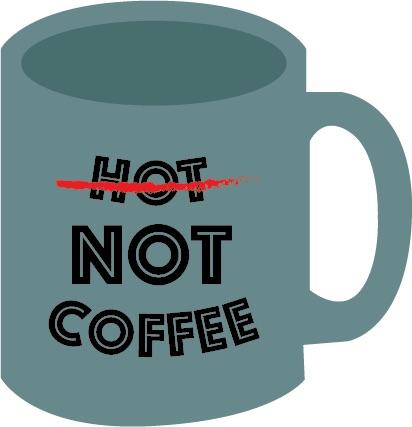Why some students don’t drink coffee.
“But, how do you survive?”
I get asked some form of this question whenever I tell people I don’t drink coffee. I’m always amused by people’s reactions when I tell them I don’t reach for a cup of coffee in the morning or when I’m studying, and as far as the Dunkin Donuts versus Starbucks debate, I’m a Dunkin person, but that’s because of munchkins.
I only started drinking iced coffee over the summer of 2017, when I had an internship in Philadelphia and our building was attached to a Dunkin franchise. Coming back to campus, I sadly had to switch to Starbucks for convenience purposes. The problem arose when I was foolishly substituting coffee for water.
One fateful day, my body decided to rebel against me—and also a Starbucks’ mocha Frappuccino. Two days later at the doctor’s office, I was told I was going through exhaustion and slight dehydration. I had just about every symptom: dizziness, headaches, fatigue, appetite loss, achiness—all caused by drinking too much caffeine. I decided it was time for me to give up my wild, caffeinated lifestyle and switch back to what I knew best: tea and ice water.
Kimberly O’Neil, D.C., business owner of True Health, Chiropractic and Wellness, specializes in nutrition, but is a coffee drinker herself. O’Neil has one to two cups of coffee a day.
“[Coffee] is high in antioxidants and it’s a stimulant so it keeps you awake,” O’Neil said.
According to the California College of San Diego, 90 percent of Americans consume caffeine every day. O’Neil was not surprised by this.
“Just being a coffee drinker myself, it’s part of the daily routine,” she said. Though it seems like everyone around me drinks coffee, with 50 percent of Americans drinking about three cups of coffee a day, there are certainly people who aren’t entirely dependent on coffee.
Amanda Hedges ’18 does not drink coffee because of the taste.
“I like coffee flavored things, such as coffee ice cream or Java Chip Fraps,” Hedges said. “However, I just really don’t like the taste of coffee when drinking it.”
Hedges also gets shocked responses when she reveals that she doesn’t drink the staple of so many college student’s lives.
“Most of the time people say how they could not survive without coffee and don’t get how I do it,” Hedges said. “I tell them I am not going to make myself drink something I don’t enjoy.”
Alex Worden ’18 also gets asked how she survives without coffee, but feels not relying on coffee is actually a healthier way to stay awake and like Hedges, she doesn’t like the taste.
“The taste is too bitter and I have to add a bunch of sugar/creamer/flavoring to even drink it. Adding in all that sugar is really unhealthy,” Worden said.
Worden’s alternatives to drinking coffee include drinking a lot of water, having a regular sleeping schedule and bringing snacks to campus.
“I make sure I can get at least eight hours of sleep,” Worden said. “During the day, I like to bring Larabars or some kind of snack in my backpack. Having a snack in between classes helps me focus better.”
O’Neil feels there aren’t risks to drinking coffee, but acknowledged that a lot of caffeine in general can decrease calcium in the bones. She said adding milk or cream in coffee can help.
Hedges and Worden both feel the caffeine in coffee doesn’t help them stay awake.
Hedges not only doesn’t drink coffee, but tries to avoid caffeinated beverages in general.
“Usually, I don’t notice an effect of the caffeine,” Hedges said.
Additionally, Worden doesn’t see the perks of coffee that many people praise.
“I don’t feel like it wakes me up or makes me more alert, and it actually makes me feel more tired,” Worden said. “Plus even if it wakes you up for a little bit, usually people just crash later and then end up drinking more coffee.”













































